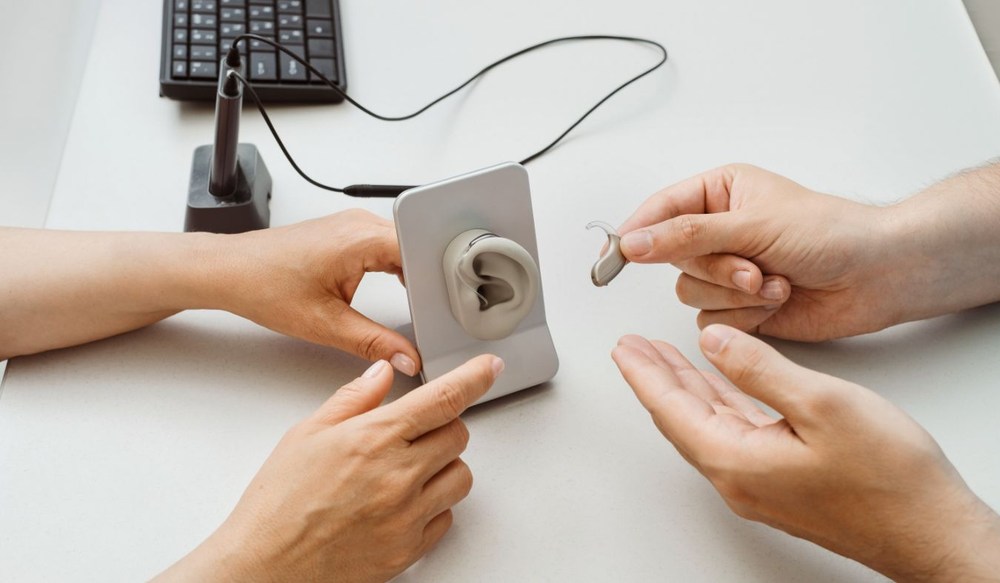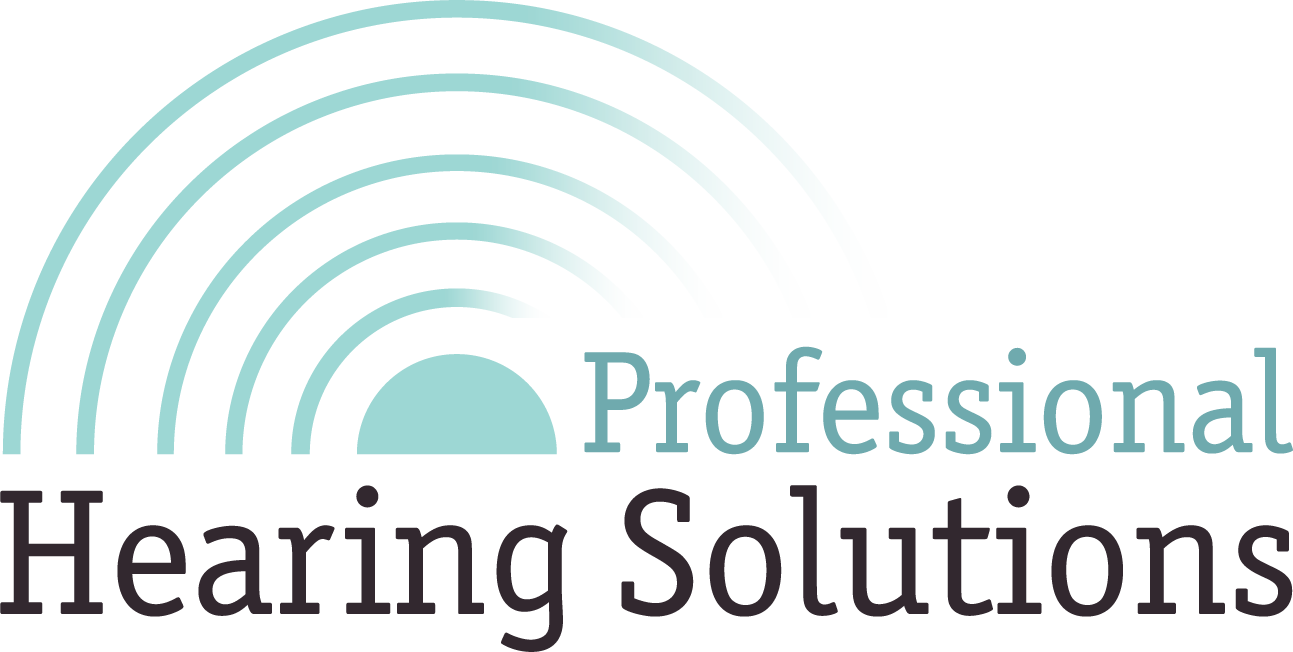The Impact of Hearing Aid Design on Wearer Comfort
The design of a hearing aid affects more than just how it looks. It
We Are Proud to be a VA Provider! SCHEDULE TODAY

By: admin | December 23, 2024
Humidity can have an impact on your hearing aids, influencing both their performance and durability. High moisture levels in the air can make these devices more vulnerable to issues like corrosion, reduced sound quality and even temporary malfunctions. While hearing aids are built to be durable, they still require proper care to handle the challenges posed by humid environments.
Knowing how humidity impacts your hearing aids is important for keeping them in good condition. Taking proactive measures, like using a hearing aid dehumidifier or storing your devices correctly, can help protect them and ensure they function properly, even in damp environments.
To know how humidity affects your hearing aids, it’s useful to know how they operate. These devices are built with intricate components that work together to enhance sound and support your hearing. Although they are engineered for durability, humidity can still impact their intricacies, potentially reducing their efficiency or causing temporary issues.
<p>Hearing aids are advanced devices designed to help individuals with hearing loss by making sounds clearer and louder. They work by picking up sound through a microphone, which changes the sound into electrical signals. These signals are processed by an internal chip that adjusts them to match the wearers specific hearing needs. The processed sound is then sent through an amplifier, which boosts its volume and quality. A small speaker, known as a receiver, converts the electrical signals back into sound waves that travel into the ear, making it easier to hear. Many <a href=”https://professionalhearingsolutionsfl.com/hearing-aids/”>modern hearing aids</a> use digital technology to separate speech from background noise, helping individuals focus on conversations and important sounds while minimizing distractions.</p>
High humidity levels can have an effect on the performance of your hearing aids. When the moisture level in the air rises, your hearing aids may not function as effectively as they should. High humidity levels can lead to condensation building up inside your devices, potentially damaging the intricate electronic components they rely on.
This moisture buildup can cause a range of issues with your hearing aids, from static noise and distorted sound to complete failure of the device. The delicate microphones and receivers within your hearing aids are particularly susceptible to damage from excessive moisture. While these devices are designed to withstand everyday wear and tear, they are not immune to environmental factors such as high humidity.
So, protecting your hearing aids from high levels of humidity is vital. This could involve using a dehumidifier at home during particularly humid months or investing in special drying containers for your hearing aids. By being proactive, you can help ensure that you continue enjoying clear sound quality, no matter the weather conditions.
Seasonal changes in moisture and temperature can impact your hearing aids, it’s important to understand that each season brings unique weather patterns, like humidity which can influence how your hearing aids perform. The shift from a hot summer to a cool fall or from a damp spring to a dry winter can have effects on your devices.
During colder months, you might find yourself in environments with lower humidity levels. This can be beneficial for your hearing aids as it reduces the risk of moisture buildup. However, the cold weather could also mean more time spent indoors where heating systems might create drier conditions. This could potentially lead to static electricity buildup in your hearing aids, which can interfere with their functionality.
In contrast, warmer seasons often bring higher humidity levels, which can create challenges for your hearing aids. Activities like swimming or sweating due to high temperatures might expose your devices to additional moisture. Each season can have different factors that can affect the performance and care of your hearing aids. Being aware of these seasonal changes and adjusting your maintenance routine can help ensure consistent sound quality throughout the year.
High humidity levels can cause moisture to accumulate in your hearing aids, which may affect their performance and lead to potential damage. Being mindful of these effects is important, but taking practical steps to protect your devices is equally necessary.
One practical step is using a dehumidifier in areas where you store or use your hearing aids frequently. This can help control the moisture level in the environment and reduce the risk of condensation forming inside your devices. Additionally, consider investing in a drying container or desiccant for your hearing aids. These products are designed specifically to draw out moisture from electronic devices and could extend the lifespan of your hearing aids.
Another helpful tip is to open the battery compartment at night, allowing any accumulated moisture to evaporate. Regular cleaning can also prevent buildup of moisture and earwax that could decrease functionality. Remember, taking care of your hearing aids means taking care of your ability to connect with the world around you.
Protecting your hearing aids from humidity is important for ensuring they remain functional and reliable. Taking precautions can help you maintain consistent sound quality, even as weather conditions or seasons change, allowing your hearing aids to continue supporting your daily activities effectively.
Choosing the right protective gear for your hearing aids during high-humidity seasons is essential to keep them functioning properly. One effective option is a waterproof cover, which acts as a barrier against moisture. These covers are designed to fit snugly over your hearing aids, protecting the delicate components from humidity, sweat and even light rain. Waterproof covers are especially useful if you spend time outdoors in humid conditions or engage in activities that might expose your devices to moisture. They not only help maintain the performance of your hearing aids but also reduce the chances of damage caused by prolonged exposure to damp environments.
Another useful tool is a dehumidifying case for storing your hearing aids when they’re not in use. These cases work by drawing out moisture from your devices, reducing the risk of damage caused by high humidity levels.
But remember, even with suitable protective gear, regular maintenance and care are key in ensuring that you continue enjoying clear sound quality regardless of weather conditions. Make sure you consult with an audiologist about how best to protect and maintain your devices during high-humidity seasons. They will help you find the right options for your specific needs.
Knowing when to see an audiologist for hearing aid issues is essential, particularly if the problems may be linked to humidity. If your hearing aids stop working unexpectedly or turn off intermittently, even after replacing the batteries or checking their charge, it could signal an internal problem. Humidity can sometimes affect the internal components, leading to issues like circuitry malfunctions or disruptions in calibration. An audiologist can evaluate your device, determine the underlying cause and provide solutions like repairs or, if necessary, recommendations for a replacement.
Physical signs of damage to your hearing aids are another reason to consult an audiologist, especially during humid conditions. Cracks, loose parts or damaged tubing can affect how your devices function, even if the damage seems minor at first. Over time, these problems can worsen, affecting both sound quality and comfort. An audiologist can carefully examine the devices, make any needed repairs and ensure they are functioning correctly, helping to prevent further complications.
Regular maintenance is crucial for ensuring your hearing aids work properly, but not all issues can be fixed at home. If you’re noticing changes in how your hearing aids perform, even after troubleshooting, it’s best to schedule a visit with an audiologist. They have the expertise to handle complex device issues and can guide you on the next steps, whether that involves repairs, replacements or adjustments to ensure your devices continue to meet your needs effectively.
Proper maintenance of your hearing aids is key to keeping them safe from humidity, particularly during wet or humid conditions. One important step is to store your hearing aids in a dry, secure place when not in use. Avoid areas like bathrooms or near windows where moisture levels are high. It’s also a good idea to remove your hearing aids during activities that could cause excessive sweating, like exercising or working in hot, humid environments, to prevent moisture from affecting their performance.
In addition, cleaning your hearing aids regularly can help protect them from the effects of humidity. Use a soft cloth or brush to gently clean the surfaces, especially the microphone and receiver areas, to remove any moisture or buildup. If you have behind-the-ear hearing aids, check the tubing for any moisture or blockages.
Overlooking these steps can lead to issues like a decline in sound quality or a malfunction with your hearing aids. Furthermore, avoiding regular check-ups could mean missing out on important updates or adjustments that could improve your auditory experience. By being proactive with cleaning and avoiding environments where humidity is high, you can reduce the chances of damage and ensure your hearing aids continue to work effectively.
Professional Hearing Solutions is here to assist you with all aspects of hearing aid care and maintenance. If you’re unsure about the right protective gear for high-humidity seasons or need advice on regular maintenance routines, don’t hesitate to get in touch with us. We’re committed to helping you ensure that your hearing aids continue to provide clear sound quality regardless of environmental conditions. Reach out to our Port Orange, FL office by calling (386) 478-7345 to learn more information or schedule an appointment.

The design of a hearing aid affects more than just how it looks. It
By: admin | October 20, 2025

Nothing beats summer’s outdoor possibilities. Whether you’re
By: admin | July 29, 2025

Hearing tests have come a long way from the basic “raise your hand
By: admin | June 20, 2025
